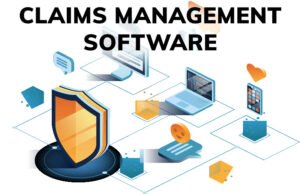Vendor liability insurance coverage is specifically designed to protect vendors from financial losses resulting from claims related to their goods or services. This insurance typically covers costs associated with product defects, mislabeling, and other hazards associated with goods reaching customers. As consumer protection increases and business models change, businesses will need to understand several aspects of vendor liability insurance in 2024. Coverage ranges from basic liability for a wide range of hazards to specialized protection to meet the needs of specific industries, ensuring comprehensive protection against potential lawsuits and claims.
Product Liability Insurance
In 2024, product liability insurance will be a key component of vendor liability insurance. This coverage covers the possibility that defects in design, manufacturing, or marketing could cause the product to harm the consumer. Product liability insurance helps pay for legal fees, settlements, and restitution if a customer files a lawsuit as a result of property, illness, or injury caused by merchandise or products. Stricter regulations and increasing consumer awareness of product safety make product liability insurance even more important in 2024.
Complete Operational Coverage
Another important feature of vendor liability insurance is full operational coverage, especially for companies that provide installation or service after the product has been sold. This coverage protects against claims arising from services performed or products installed. For example, if a product fails after installation and results in damage or injury, full operational coverage can help cover related legal costs and compensation. Because it protects against liability even after the initial sale, this type of coverage is especially important for vendors in industries where items require after-sales service.
Advertising Accident Insurance
Given the increased focus on digital marketing in 2024, advertising accident insurance is more important than ever. This coverage protects vendors against claims arising from advertising tactics such as false advertising, copyright infringement, or defamation. Advertising Damage helps cover legal costs associated with claims from competitors or third parties who claim that advertising campaigns have damaged their reputation or infringed on their intellectual property rights. Given the reliance of vendors on internet marketing, this coverage provides essential protection in a busy advertising environment.
Property Damage Insurance
A key component of vendor liability insurance, property damage coverage protects businesses from claims related to damage to customer property. This coverage is important for vendors whose goods may cause physical damage due to malfunction or improper use. For example, property damage coverage helps cover the costs if a product causes a fire in a customer’s home or destroys a valuable item. This type of insurance will continue to be important in 2024, as vendors must consider the potential dangers of the goods they offer in connection with their property.
Bodily Injury Coverage
Another key component of vendor liability insurance that covers the possibility of physical damage to goods is personal injury insurance. This coverage protects vendors from harming customers who use or handle the products. Personal injury insurance can help pay for any damages awarded or settlements and cover legal defense costs if a consumer files a lawsuit over product damage. With consumer claims increasing and health and safety standards rising in 2024, personal injury insurance will be more important than ever for retailers trying to avoid financial responsibility.
Vendor-Specific Scope of Product Recalls
Vendor-specific coverage for product recalls will become even more important in 2024, given the increasing frequency of recalls across many industries. This coverage helps businesses manage the financial impact of a product recall, including the costs associated with notifying consumers, shipping damaged goods, and replacing or repairing products that have been returned.
connected with digital operations as e-commerce and data security issues emerge. For sellers with significant consumer data, this coverage is absolutely vital.
Intellectual Property (IP) Infringement Coverage
Coverage for intellectual property (IP) infringement shields suppliers from legal actions connected to claimed trademark, patent, or copyright infringement of their goods. In sectors where there is intense competition and sellers could find difficulties with product uniqueness or branding, this covering is particularly pertinent. In a world where intellectual property conflicts are very frequent, IP infringement coverage offers vital protection and helps pay for legal defense and possible settlements. IP infringement coverage can be a crucial protection for suppliers entering competitive markets or releasing innovative products.
Product Alteration and Counterfeit Coverage
Demand for specific coverage choices inside vendor liability insurance has been driven in 2024 by the proliferation of counterfeit goods and product tampering. Counterfeit coverage and product tampering guard against claims or damages should a third party tamper with a product or if counterfeit copies find their way on market. This coverage enables sellers to control the expenses related to detecting and resolving instances of tampering as well as reimbursing impacted consumers. This coverage gives companies in high-risk areas extra defense as customers grow more sensitive about product authenticity.
Enhanced Coverage for Global Sales
Extended coverage for worldwide sales is a crucial choice in 2024 as global e-commerce is fast growing and sellers are more vulnerable to foreign legal concerns. This coverage covers claims resulting from goods supplied internationally, therefore extending the protection of vendor liability insurance. International sales coverage guarantees vendors are financially covered when selling to worldwide consumers since different nations have distinct regulatory and liability rules. This topic is absolutely essential for companies looking to grow abroad in handling the particular legal and operational difficulties of cross-border sales.
Conclusion
In essence, selecting the appropriate coverage options is A broad range of coverage choices provided by vendor liability insurance helps to handle the several hazards suppliers must deal with by 2024. From basic ideas like product liability and property damage coverage to specialist choices like cyber liability and product tampering coverage, every choice addresses distinct facets of vendor risk. The particular industry of a vendor, the type of their products, and the markets they service will determine the appropriate coverage choices. Vendors can create a thorough insurance policy that offers strong protection and helps them to confidently negotiate the difficulties of today’s complicated marketplace by carefully evaluating their needs and engaging with insurance professionals.




